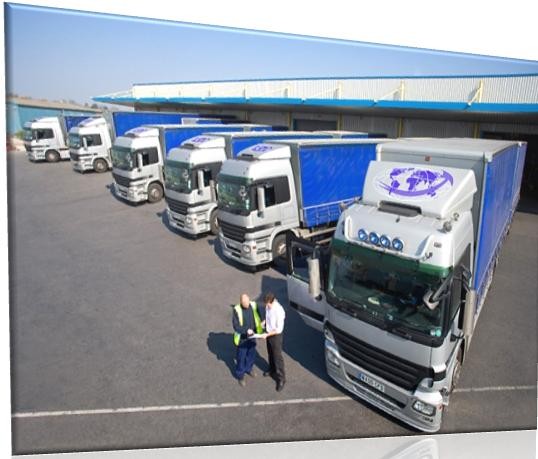Choosing a Successful Location for Your Business
Post on: 18 Август, 2015 No Comment

Select a business space that suits your company’s needs.
Every business owner must figure out how location will (or won’t) contribute to the success of the business — and choose a spot accordingly. Though there are many issues to consider when you’re looking for space to house your business, make sure you ask yourself these four important questions:
- Is location important for the success of your business?
- What type of location is best for your business?
- How much rent can you afford?
- Is your proposed location appropriate for what you plan to do there?
Is Location Important for the Success of Your Business?
For some businesses, the classic advice location, location, location is right on the mark — location can mean the difference between feast or famine. But for other enterprises, location may be much less important than finding affordable rental space. In fact, location is almost irrelevant for some businesses: service businesses that do all their work at their customers’ locations (such as roofers and plumbers) and businesses that have little contact with the public (such as mail-order companies, Internet-based businesses, and wholesalers). If these types of companies can pass on rent savings to their customers and their profit margin, picking a low-cost spot in an out-of-the-way area might be an advantage.
What Type of Location Is Best for Your Business?
The key to picking a profitable location is determining the factors that will increase customer volume for your business. Ask yourself questions such as:
- Will customers come on foot?
- Will customers drive and, if so, where will they park?
- Will more customers come if you locate near other similar businesses?
- Will the reputation of the neighborhood or even of a particular building help draw customers?
Keep in mind that different types of businesses attract customers in different ways. One key distinction is foot traffic versus automobile traffic. For example, if you’re opening an urban coffee shop, you may assume your customer volume will be highest if there’s lots of pedestrian traffic nearby during the hours you plan to be open. On the other hand, for an auto repair shop, the choicest locale is a well-traveled street where the shop will be seen by many drivers who can easily pull into the lot.
Also consider whether it would benefit your business to be around similar businesses that are already drawing the type of customers that you want. A women’s clothing store, for example, would no doubt profit from being near other clothing shops, since many people shopping for clothes tend to spend at least a few hours in a particular area.

Ultimately, the perfect location for any business is a very individual matter. Spend some time figuring out the habits of the customers you want to attract, and then choose a location that fits.
How Much Rent Can You Afford?
Chances are that you’ll rent rather than buy a space for your business. Most small start-ups don’t have the funds to purchase real estate, and it’s usually not a good idea to saddle your business with high interest payments in any case.
One obvious and important concern when looking for commercial space to lease is finding a place that you can afford. When you projected your financials (as part of your business plan), you should have estimated how much rent your business would be financially able to pay each month, given its projected revenues and its other expenses. (For advice on figuring the amount of rent you can afford, read Nolo’s articles on Business Plans .)
How to Determine the Average Rent in Your Area
Brokers and agents are great sources of information on rental costs in various neighborhoods. They’ll generally give you an average figure for the cost of commercial space per square foot per year in a given area. Once you have this figure, you can compare it to the costs of other spaces you’re considering.
If you haven’t done so already, research the average rental costs in your area to make sure the amount you budgeted for rent makes sense, given the cost of commercial space in your area and how important location is for your business. For example, if you determined that location is very important to your business, make sure your budget will allow you to rent good space given the average cost of space in your area. If not, you may have to rework your business plan.
Is Your Proposed Location Appropriate for What You Plan to Do There?
When choosing business space. the biggest consideration is sometimes not where it is but what it is. The building facilities need to be appropriate for (or adaptable to) your business. For example, if you’re planning to open a coffeehouse, you need a place with at least minimal kitchen facilities. Unless you can convince the landlord to put in the needed equipment — plumbing, electrical work, and the rest — it’s highly unlikely that laying out the cash to do it yourself will be worth it. In short, if a building lacks something major that is essential to your business operation, you should probably look for something else.
Communications Wiring
Another consideration that’s important for many businesses these days is having modern phone and other data lines available to the business. When you’re considering a specific space, ask the agent or the landlord for information about communications wiring, such as whether the space is connected to a fiber optic network or is wired for DSL or a T1 line (high-volume Internet connections). Also, find out to whom the landlord has sold the rights to the risers (wire conduits) in the building. A commercial landlord cannot enter into exclusive contracts with a single telecommunications provider such as MCI or AT&T. However, to bring in another provider of your choosing could be expensive.
Besides high-tech communications wiring, don’t overlook plain-old electrical power as an important consideration in choosing a business space. Make sure that any space you’re looking at has enough power for your needs, both in terms of the number of outlets in your space and the capacity of the circuits. If you’ll be running machinery or other electricity-hungry equipment, find out from the landlord how much juice the circuits can handle and whether a generator is available during power outages. Also, if you’ll keep sensitive computer equipment at your office, ask the landlord how many hours of air conditioning are included in the terms of your lease, and negotiate longer hours if necessary.
Adequate parking is another common need for many businesses. If a significant percentage of your customers will come by car and there isn’t enough parking at your chosen spot, it’s probably best to look elsewhere. In fact, the city planning or zoning board might not allow you to operate in a space that doesn’t have adequate parking.
Zoning Rules
Finally, the location that you choose needs to be legally acceptable for whatever you plan to do there. A certain spot may be good for business, but if it’s not zoned for what you plan to do, you’re asking for trouble.
You should never sign a lease without being sure you’ll be permitted to operate your business in that space. Your city planning or zoning board determines what activities are permissible in a given location. If your zoning board has a problem with any of your business activities, and it’s not willing to work out a way to accommodate your business, you may have to find another space.
To learn more, see Nolo’s article, Avoid Zoning Trouble .
Planning to Work From Home?
Working from home can be much simpler than renting a separate office space, but it might put you in violation of zoning and other laws that regulate residential and business spaces. Be sure you’re familiar with the laws that affect home businesses, as well as other legal issues such as the home-office tax deduction. For information about running a business from your home, read Nolo’s Home Business articles.
For more information on finding and evaluating space for your business, see Negotiate the Best Lease for Your Business . by Janet Portman and Fred Steingold (Nolo).














